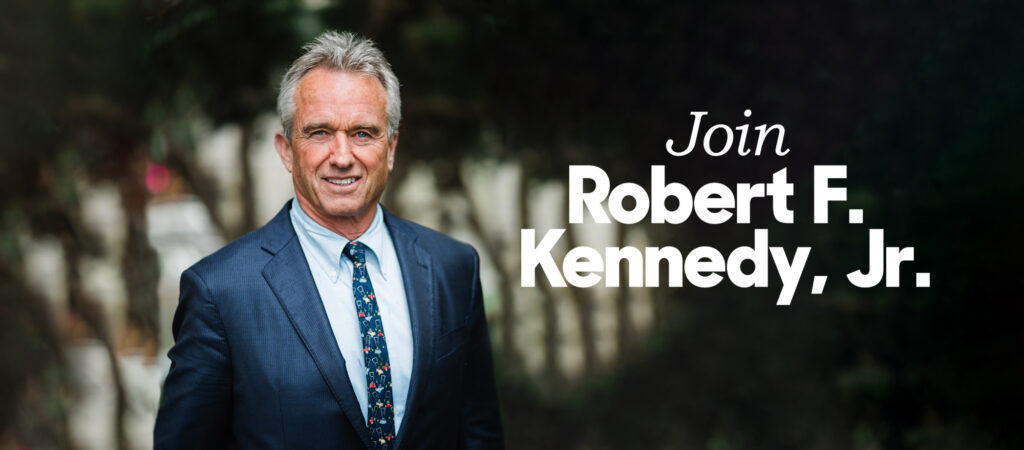In National Review, Michael Brendan Dougherty considers the possibility that Democrats are tired of “the idea that they’ve become the front men for a nexus of corporate and government power.” He writes:
With very little news coverage — nearly all of it openly mocking him — Robert F. Kennedy Jr. begins his improbable candidacy for the Democratic nomination, polling at 14 percent against Joe Biden.
There are plenty of reasons to believe that this is a function of Joe Biden’s overall weakness. In some polls, over 40 percent of Democrats say they want someone other than Joe Biden.
After all, Robert F. Kennedy Jr. is dismissed as the monomaniac about vaccine safety, the promoter of the theory that some childhood vaccines cause autism. During the pandemic, he became a scorching critic of Dr. Anthony Fauci.
But watching his announcement speech, I started to tally up the lines that resonated with me, or felt like they would be cathartic for my liberal friends to hear or say.
Of partisanship, he said: “Nobody can see a safe way out of it. . . . They are preparing for a dystopian future.”
The government lies to us.
The media lies to us; everybody knows that.
A lot of misinformation is just statements that depart from government orthodoxy, so they have to either censor us or lie about what’s true or not true. That amplifies the polarization, the fear, the insecurity. You know you’re being lied to and you’re being silenced.
When we destroy a special place, we are diminishing our capacity to sense the divine.
Dismissing Robert F. Kennedy Jr. might be a mistake. He is offering himself as a candidate for a different type of liberal and progressive, one who suspects that liberal and progressive values have been betrayed as they’ve become mainstreamed and institutionalized. One who wonders why skepticism of corporations, government, and war is now almost absent among Democrats, rather than characteristic.
Kennedy gave the thesis of his campaign. He is running “to end the corrupt merger of state and corporate power that is threatening now to impose a new corporate feudalism on our country, to commoditize our children, our purple mountains’ majesty, to poison our children and our people with chemicals and pharmaceutical drugs, to strip-mine our assets, to hollow out the middle class, and keep us in a constant state of war.”
Kennedy invoked his years as what he called an “environmental advocate.” This highlights something about his tradition of liberalism. He rejected early offers to work on high-level environmental policy in Washington. Instead, he worked with organizations such as Riverkeeper, built on the activism of hunters and fishermen. “Hook-and-bullet people,” RFK called them. It is almost exactly the type of environmental organization that conservative philosopher Roger Scruton would have approved of, because it was built on the love of local people for their land and protective of the human livelihoods that depend on that land and the wildlife. He talks about the environment in the spirit of trusteeship. Pollution can create prosperity for a few in the present only by externalizing its costs generally, or to posterity.
Of course in some ways this is inevitable. Just as Donald Trump had retrieved political themes from the deep past of the Republican Party — an America First foreign policy, trade protectionism — so it must be that a Democrat should come along and try to revive left-leaning skepticism of government and corporate power, to denounce crony capitalism, censorship, and the CIA to boot.
Something about Robert F. Kennedy Jr.’s halting delivery, which is due to the very rare condition of spasmodic dysphonia, gives his rhetoric a desperate-sounding sincerity. He sounds like he is constantly choking up, constantly on the edge of being overwhelmed by passion. Perhaps this voice was given to him because he is the last pallbearer of this tradition of left American politics.
If you’re willing to fight for Main Street America, click here to sign up for the Richardcyoung.com free weekly email.





